HOME | ABOUT US | MEDIA KIT | CONTACT US | INQUIRE
HOME | ABOUT US | MEDIA KIT | CONTACT US | INQUIRE
From agriculture and aviation to zoonotic-disease research, Kansas is awash with companies, universities and non-profit organizations that are pushing the state’s economy forward. In doing so, they elevate the quality of life for nearly 3 million residents. Kansas, it’s been said, is small enough for everyone to know everyone else. Obviously, not true. But here are 50 people who, if you don’t know them, you should know about, because in many ways, they are touching your life today.
A | B | C | D | E | F | G | H | I | J | K | L | M | N | O | P | Q | R | S | T | U | V | W | X | Y | Z
 Todd Allison, Progressive Products, Pittsburg
Todd Allison, Progressive Products, Pittsburg
Todd Allison will admit: Art students don’t normally pursue careers in manufacturing. Yet he credits his art and design background for the adaptability and thinking needed to tackle the complex challenges at PPI, a Pittsburg-based company specializing in abrasion-resistant equipment for pneumatic conveying. A native Kansan, Allison grew up in Lawrence, got a bachelor’s in photography in Georgia, and even ran his own photography store in Lawrence until he decided to change careers when his wife was laid off. His father was one of the original partners in PPI, so Allison found himself moving to Pittsburg and starting as a regional sales manager and sales engineer at the company before eventually being promoted to president. Under his leadership, the company has grown to 46 employees and three separate production lines and has expanded its offerings by now manufacturing Apex Stages, the top American-made mobile concert stage brand. He’s proud to call southeast Kansas home and appreciates the opportunities Pittsburg offers to manufacturers. “This area is more conducive to manufacturing than many more metropolitan areas. I also think—from a logistics point of view—that being centrally located in Kansas has real advantages for national product distribution. Pittsburg is a great place to start a new business.”
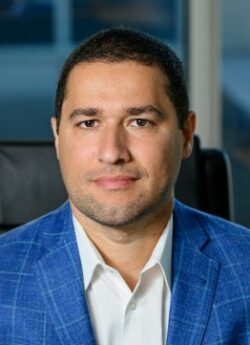 Marco Assis, Propio Language Solutions, Overland Park
Marco Assis, Propio Language Solutions, Overland Park
Marco Assis is your walking-talking proof that the global economy is thriving in Kansas. The Brazilian native moved to Johnson County with his wife to be closer to her family and is now the CEO of Propio Language Services. In three years on his watch, the small company’s revenues have exploded nearly 12-fold, to $140 million, and the staff has grown from 10 when he was hired to more than 200 today as it claims its place among the Inc. 5000 list of the nation’s fastest-growing companies. “I spent the early part of my career working in various financial positions in various countries for Shell Oil Co. and Puma Energy,” says Assis, who is fluent in English and Spanish, as well as his native Portuguese. “Having lived in so many different cities, I had an immediate appreciation for the local culture, exceptionally friendly people, food, and exciting sports scene in Kansas City and knew it was the perfect place to raise our family, build a business and make a big impact.” At Propio, which specializes in business-related translation services, Assis is hip-deep in the same challenge facing so many business sectors in the state: The eternal quest for talent. Fortunately, “Kansas is home to an abundance of talented people for all areas of our business,” he says. “And the combination of a lower cost of living than other metro areas, a great assortment of shopping and restaurants, winning sports teams, as well as so many other great perks too numerous to list, makes it easy to recruit out-of-state talent to move here as well.”
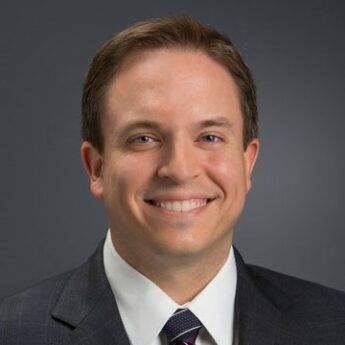 Aaron Bastian, Fidelity Bank, Wichita
Aaron Bastian, Fidelity Bank, Wichita
This part of the country has no shortage of iconic surnames in banking—think of the Kempers in Kansas City and the Chandlers in Wichita—but even those families are getting a run for their money with the Bastian clan, specifically, with Aaron Bastian, president and CEO of Wichita-based Fidelity Bank, who represents generation four of that family. He took the helm from his father, Clark, in 2020 and is responsible for the overall vision and strategic direction of the bank, as well as day-to-day business operations. How’s it been going? Well, during his time as president, Fidelity achieved its most profitable years, substantially grown assets, and navigated a charter change to a national banking association. He’s been with Fidelity since 2007, coming on board as a commercial loan officer. He worked in that sphere for five years before becoming president of Fidelity’s Oklahoma market, and his work there—including record profitability in the Oklahoma City market—prepped him for senior leadership at the Wichita bank, starting as president in 2015 and serving in that role until 2020. He earned a bachelor’s degree in business administration from the University of Wisconsin, then finished first in his class at UW’s Graduate School of Banking. His civic engagements include the board of directors for the Greater Wichita Partnership, which brings various organizations together to promote the region’s business interests. He also was a founding co-chair of Project Wichita, which works to set a 10-year vision for the city’s growth.
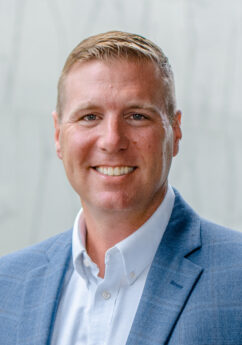 Jeff Blaesing, J.E. Dunn Construction, Shawnee
Jeff Blaesing, J.E. Dunn Construction, Shawnee
Jeff Blaesing likes to keep things simple: He’s worked for precisely one employer since college, and he’s lived in Shawnee since moving to the Kansas City area. “I figure I’ll be in both places until I die,” he jokes. A native of Lockport, Ill., he headed to the University of Nebraska with a pair of interests—construction management on the academic side and baseball on the athletic side, where he pitched for the Cornhuskers. Baseball free agency didn’t appeal to him—“I was married and wanted to get to work,” he says—but he did land with the pros in Kansas City, joining JE Dunn Construction and working in project management. Today, he’s the Kansas City office director for the region’s largest contractor, overseeing the mother ship in an enterprise with 20 locations nationwide. On his way up, he says, “I focused on knowing the business and knowing what makes our project teams and our people successful. Every time something came up, trivial or difficult or fun, I raised my hand. I would not trade this for the world—it is my dream job.” Leading that office carries a special responsibility because of the way Dunn has grown up with the community. “It is absolutely different,” Blaesing says, “because we pride ourselves on being a community builder. We work with so many not-for-profits and businesses, and a lot of our other markets don’t have that depth of relationships as we do in our hometown.”
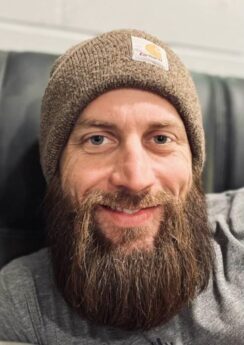 Nathan Berg, Berg Reinvigorations, Independence
Nathan Berg, Berg Reinvigorations, Independence
Working in the oil sector was tough duty, but it didn’t kill him. Neither did a brain tumor. But after living through both, Nathan Berg charted a new course in life. He teamed with his wife to launch Berg Reinvigorations, a sawmill and dry kilning service now based in Independence. That corner of Montgomery County in southeast Kansas may seem an unlikely place to be turning out specialty timbers from, say, Pacific-grade Douglas Fir, but Berg is making it work, and with an increasingly influential clientele: the owner of the Colorado Rockies ordered up a custom staircase, and Mar-a-Lago Bay Club in Florida has one of Berg’s custom walnut credenzas. Looking for something bigger? Try the city park bridge that had to be delivered—by helicopter—to Bartlesville, Okla. Berg is a native of Independence and a petroleum engineer by training, having earned a degree in it from KU. But after nearly a decade trying to meet the demands of traveling from rig to rig around the country, then surviving a major health scare, he changed directions. “My wife said, ‘What do you want to do?’” he says, and that got him thinking. “My woodshop teacher in high school, who was a Green Beret, was one of my favorites,” Berg says. “He really instilled in me the value of quality woodworking.” He also drew on family experience with his father’s home-building career. The company launched in Oklahoma, but family considerations called him back to Independence, and Montgomery County was there with business incentives and grants to help turn an idled oil-services company site into a mill.
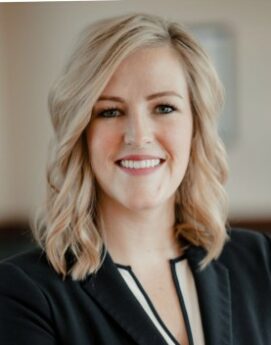 Anna Bjerken, Oread Rx, Dodge City
Anna Bjerken, Oread Rx, Dodge City
Anna Bjerken, a native of Leoti in far western Kansas, graduated from Dodge City High School and Dodge City Community College, then earned a degree in medical diagnostic imaging from Fort Hays State University, then an MBA from Colorado Tech to boot. In a very real sense, she’s the poster child for what Kansas’ leadership has been pushing with efforts to stop the brain drain of young, highly educated workers who too often end up taking their skills to pursue careers out of state. So it was only natural that she would start her career in … Alaska? True enough. But just a couple of years later, she brought her skills in medical administration back home, working with different health-care providers in Dodge City. Then came a pivot in 2019 to promote business growth and development as president and CEO of the Chamber of Commerce there. For the next 3½ years, she worked to bolster economic development and tourism in a city of nearly 28,000. Last fall, her background in medical administration produced the most recent turn of career events when Bjerken joined Oread Rx as director of operations. That’s a perfect use of her skill set, working in a key economic sector that is rife with disruption. Oread Rx is part of that disruption, offering pharmacy benefits services while working with plan sponsors, payers, patients, and pharmacies.
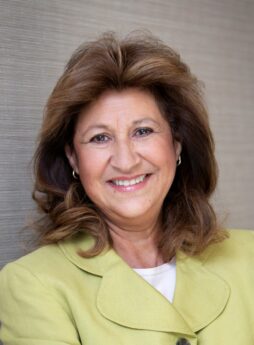 Yolanda Camarena, Kansas Hispanic Education & Development Foundation, Wichita
Yolanda Camarena, Kansas Hispanic Education & Development Foundation, Wichita
Don’t bet against Yolanda Camarena realizing her vision for improving the lives of Hispanic youth and businesses in Wichita—and, by extension, the shared prosperity for the whole city. She’s a woman who sets goals, attains them, then targets new ones. Doubt us? She dated her future husband Gene for 10 years—with multiple marriage proposals along the way—while working her to-do list. “I kept putting it off,” says the longtime board member for the education and development foundation. “I wanted to get my education, have some new experiences in life, then live in another city. When I was 30, I thought, oh, my gosh, everything I set out to accomplish, I have. Everything from here on is a blessing.” And not just a personal one. In addition to the foundation board, she’s held seats on the board for Newman University, chaired a scholarship committee for Harvard College, and assists the Wichita Community Foundation’s grants board, among others. “The foundation was created to be a scholarship program, but since then, has transitioned into college readiness,” she says, with nearly 1,000 students earning $1.5 million in assistance over the years. Efforts like that and a business-incubator model that helps start-ups defer high capital costs until proof-of-concept serve the broader community because many of those earning degrees build their careers in Wichita. “This is where their roots are, where their families are, and where they want to make things better for the community.”
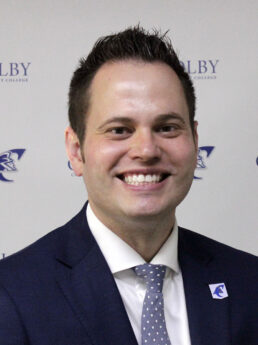 Seth Carter, Colby Community College, Colby
Seth Carter, Colby Community College, Colby
Calling it one of the “last pure professions,” education still gives great purpose to Seth Carter’s life. Serving as president of Colby Community College, he said, has allowed him to positively impact the lives of others—crafting policies and educational outcomes to effect change for students and the community. While not a native Kansan, he’s lived in the state for more than 30 years and now feels at home in Colby— “such a special place, he says”—as he steers CCC to be a true economic driver in the region, providing employment, cultural, sports, and educational opportunities. “Colby is a community where individuals are valued, and people are embraced for who they are,” he said. “It is a familial-like environment where there is a genuine concern for community and improving the lives of others. I believe this is evident in local businesses, and it permeates throughout the community, which makes for an outstanding quality of life.” Now with more than 1,900 students, the college is flourishing under Carter’s leadership, recently ranking first in the Best Associate Degrees in Kansas report and achieving the highest graduation rate of all Kansas community colleges last year. “This is what drew my family and me to Colby Community College,” he says, “because we wanted to be part of something much larger than ourselves.”
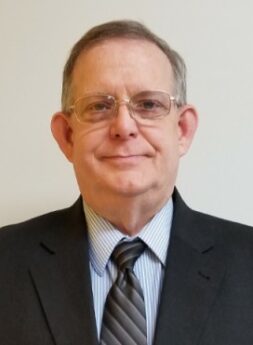 Tim Carty, EMP Shield, Waverly
Tim Carty, EMP Shield, Waverly
Just another case of necessity being the mother of invention: Tim Carty was a ham radio operator as part of the Air Force Military Auxiliary Radio System when he discovered he needed electromagnetic pulse protection for his equipment. When he couldn’t find anything to fit his needs, he designed his own. Soon, others requested the same kind of protection, leading him to start EMP Shield, a technology that can defend your house, business, and even an entire electric grid from a high-altitude EMP threat. Now with 31 issued patents—including seven for EMP protection for the national electric grid and critical infrastructure—he’s ready to take the company even further, with plans to locate a computer chip manufacturing facility in the Coffey County town of Burlington. Producing thousands of chips per week, the $1.9 billion project should create more than 1,200 jobs for the region—quite the accomplishment, he said, from where they started. “Being a hillbilly from Tennessee and not having a track record with EMP protection, we had to work extra hard to prove our worth in the industry,” he says. “We tested our products at the very best labs that could certify our products to the military standards. Our test results exceeded the testing standards.” Carty first moved to Kansas in 1994 and has been living in Coffey County since 1996. “We have found the best workers in our rural community,” he said. “They work hard, are very dependable, and do high-quality work.”
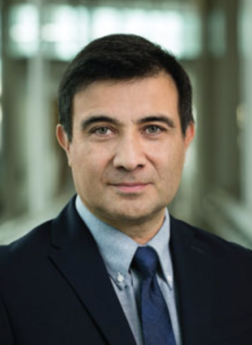 Alfonso Clavijo, NBAF, Manhattan
Alfonso Clavijo, NBAF, Manhattan
The pandemic showed us that no one on the planet is safe from a killer contagion. But that was just a virus; how would we defeat an infectious threat to both mankind and the food supply? With the past year’s completion and certification of the National Bio and Agro-Defense Facility in Manhattan, the man charged with answering that question is Colombian-born Alfonso Clavijo, who was named NBAF director in 2019. Clavijo’s path to Manhattan has retraced some earlier steps; he spent a year as a professor at K-State’s Department of Diagnostic Medicine and Pathobiology in 2015-16, so he knows the lay of the land there. Since taking the NBAF reins, he’s fought his way through a pandemic while trying to build out a research and operational staff. At its operational peak, his facility will have more than 400 full-time employees in a combination of operational and scientific roles. As much as the facility itself represents cutting-edge research capabilities, Clavijo is focused on what will really make it tick. “The most important thing that maybe sometimes people forget, in addition to having a state-of-the-art facility, at the end of the day, it’s the people who do the work,” he told an interviewer last year. “We’re investing a significant amount of effort in the safety and quality of the work. We’re very cautious. The team here is working very hard to ensure all the environment is safe. I’m very excited to have a very strong team here at NBAF.”
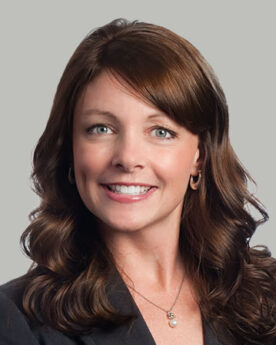 Karrie Clinkinbeard, Armstrong Teasdale LLP, Overland Park
Karrie Clinkinbeard, Armstrong Teasdale LLP, Overland Park
Don’t tell Karrie Clinkinbeard that Kansas City-area law firms can’t compete against the big firms on the coast. “You can find strong lawyers everywhere,” she said, “though Kansas City is unique in that our location in the center of the country allows us to deliver a high-quality work product at a fraction of the rates of coastal firms.” In fact, despite the competitive talent market right now, she said the firm has done well to attract some high-profile partners and associates. “We partner with top law schools in the region … and continue to be impressed with the caliber and character of graduates coming out of these schools,” she said. “Perhaps even more exciting is that we’re seeing a lot of talented individuals attend law school on the coasts but then come home to Kansas City to start their legal careers, which is tremendous for growing the talent pool in KC.” A graduate of the University of Kansas School of Law, Clinkinbeard now serves as a partner at the firm. She’s been recognized as a Missouri & Kansas Super Lawyer and Rising Star for 10 consecutive years and received the Missouri Lawyers Weekly Women’s Justice Award in 2022. She’s active with the Kansas City Area Development Council and the Kansas Chamber of Commerce’s Leadership Kansas program and supports the American Lung Association and the American Cancer Society.
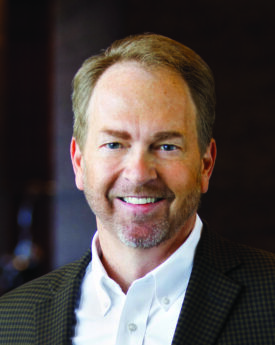 Richard Dinkel, Koch Industries, Wichita
Richard Dinkel, Koch Industries, Wichita
It took a few changes in college majors for Richard Dinkel before realizing that accounting and business were the right fit. “Things just clicked for me,” he said. “I also knew accounting could be a great career choice, which would open doors to broader opportunities.” And it was a big opportunity: Now serving as executive vice president and CFO for the Wichita-based behemoth—the second-largest private company in the U.S.—Dinkel realized in his initial interview process how closely the values and business philosophy of the company leaders aligned with his own. “My main takeaway was that it was a place where a curious, hard-working person would have a shot at a good career.” Born in a western Kansas farming community, Dinkel and his family moved soon after he was born to Wichita, where he grew up. He said the city, the largest in Kansas, is an ideal location for a company of Koch’s scale, even if it’s not easily apparent to outsiders. “Wichita—and, more broadly, this part of the country—brings a lot to the table,” he says. “It has an abundance of hard-working, strong-work-ethic-based people and many high-quality schools and universities in the region. What we’ve discovered is people might question moving here initially, but once they are here, they often never want to leave.”
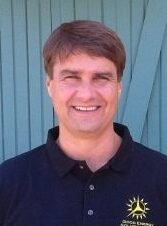 Kevin Good, Good Energy Solutions, Lawrence
Kevin Good, Good Energy Solutions, Lawrence
By now, we expect Kevin Good has heard ’em all: He’s a Good businessman. Ha. His business is doing Good. Ha-ha. The long-term outlook for his company is … Good. Ha-ha-ha. But get past those thigh-slappers, and you see that he really is in a good position with Good Energy Solutions. The Lawrence company he and his wife founded in 2007 is on a four-year winning streak in Ingram’s Corporate Report 100, a list of the fastest-growing companies in the Kansas City area. It first cracked the list at No. 100 in 2018, showing growth of more than 82 percent from the baseline of $2.1 million in 2015. Through 2021, things had more than doubled again to $6.5 million. That’s quite a step up from the humble starts in the garage of their home. “It’s been an amazing ride of growth,” he says. Marveling at the way photons pass through solar cells and throw off electrons to produce energy, Good calls it “magic that you can get your energy from the sun.” But solar radiation is just the starting point. Turning that into a business requires expert service and reliability, long workmanship warranties, and quality installations for both commercial and residential settings. Success in that space, he says, is “really about making the customers happy. People that hire us are amazing in their own right because they are pioneers— they’re thinking forward, and that’s really why we started this in the first place.”
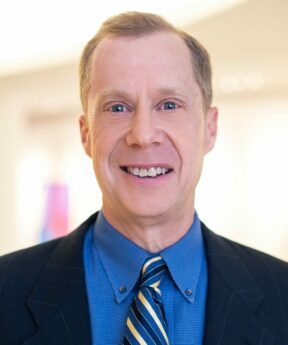 William Hanna, Stinson, LLP, Leawood
William Hanna, Stinson, LLP, Leawood
During his undergrad years at KU, William Hanna enjoyed learning about how and why different immigrant groups first came to the United States—and the lives they made once they arrived. That interest remained even after he received his law degree from Baylor University and began his law career at Stinson. “While I’m a full-time litigator, I’ve enjoyed my pro bono representation of immigrant families obtaining their Green Cards and then becoming American citizens,” he said. “It’s been the honor of my professional life to do so … [and] one of the highlights of my legal career.” Now a partner specializing in business litigation, class action, product liability, and insurance class action and litigation, Hanna was born in Newton in a hospital named after his great-grandparents. After law school, he said, he only wanted to live in Kansas City, and 34 years later, he’s still here. Not only does he personally love the area, he appreciates what the city offers to professionals. “As we all know, Kansas City is an excellent place to be both professionally and personally. Experienced attorneys seek out Stinson when making geographic moves to take advantage of Kansas City’s lifestyle or when they relocate to be closer to family in the area.”
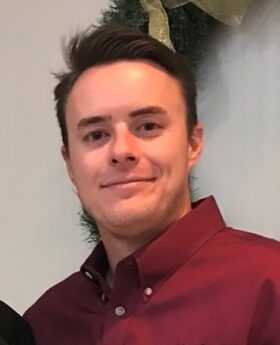 Jared Henderson, Simmons Pet Foods, Emporia
Jared Henderson, Simmons Pet Foods, Emporia
Emporia might not be the center of the manufacturing universe in Kansas, but for a town of 24,000 people, it sure acts like it. Just ask Jared Henderson, who supervises the larger of two production plants that Simmons Pet Foods has in town—with 900 employees at his main canning site and 600 more at the adjacent plant for flexible packaged products. “IBP/Tyson, Hostess, Hill’s Pet Nutrition, and of course, Simmons; are all staples in the community and provide thousands of jobs to our city and surroundings while we keep reaching for our goal of feeding the world,” Henderson says. The Olathe native has always been close to farming and food production. His father was born and raised on a small cow-calf operation in southeast Kansas, and his mother hailed from a Colby family that ran a canvas company whose customers included farmers and ranchers. After he secured a K-State degree in animal science, he joined Simmons, recalling the importance his family placed on being a “shepherd of the land.” Manufacturing tests his managerial skills, given the 12 hour shifts employees work over 3½ half days a week, so he must be on top of safety, time off, payroll accuracy, and the like. But balancing all that, he says, is a recipe for retention, “creating a place where employees are happy and excited to come to work with others who care about them deeper than just a punch on a timesheet.”
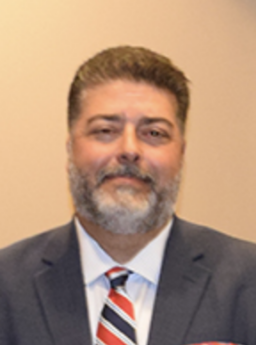 Todd Hillman, Sunflower Electric Power Corp., Hays
Todd Hillman, Sunflower Electric Power Corp., Hays
For the more rural and sparsely populated areas of central and western Kansas, access to reliable electricity is crucial. For Todd Hillman, president and CEO of Sunflower—an electric cooperative serving 58 Kansas counties—the challenge is only the latest he’s excited to tackle in his long career. “I have been working with cooperative utilities for over 25 years,” he said. “And that family togetherness and the desire to share ideas, work collaboratively and attack complex problems together are what will enable us to continue to reliably serve our members.” With experience working for an energy exchange (NYMEX), a Fortune 250 company (DuPont), an investor-owned utility (Reliant Energy) and one of the world’s largest independent system operators (Midcontinent Independent System Operator), Hillman is Sunflower’s sixth leader since it was formed in 1957. He sees Sunflower taking a leading role in a more reliable—and sustainable—model, including a generation portfolio that’s already moving toward wind and solar development. “I feel like we are in an excellent position to continue our innovation journey,” he said. “While the electricity sector traditionally has not moved at the quickest pace of change and evolution, there is no doubt that we are in the most dynamic state in our history. Knowing that my members and my fellow cooperatives have my back gives me ultimate confidence and a desire to serve them.”
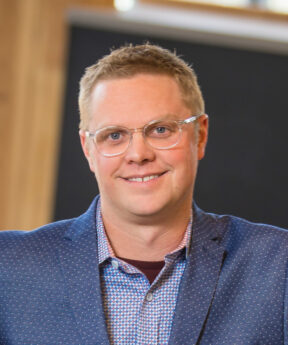 Ben Hutton, Hutton, Wichita
Ben Hutton, Hutton, Wichita
Ben Hutton loves to give tours of Wichita. As CEO of the 300-employee architecture and construction firm that bears his name, he loves showing visitors the vibrant food and arts scenes and the growing urban core—and he especially appreciates the skilled workforce he finds in his hometown. Those local competitive advantages have allowed Hutton to grow to four locations throughout Kansas—Wichita, Garden City, McPherson, and Salina—and serve the entire state while expanding its capabilities and tripling its employee count. Growing up in the industry, Hutton started working job sites at age 12 and studied construction management at Kansas State, followed by his first stint at the family business as a project manager. By 2010, he had become president, then CEO by 2016. “The construction landscape is competitive, but we’ve found our niche in serving clients that see their facilities as long-term tools and assets,” he says. “Whether it be strategic planning to help focus their efforts, thinking through real estate decisions, designing a new facility, building new or remodeling what they’ve got (and even taking care of it for decades after), we have experts that are ready to offer help.” And the company’s recent success? That’s truly because of Hutton’s people, he said. “One of the legacies my father created was an organization of amazing team members,” he said. “My primary job is to continue that legacy and try my best not to mess it up!”
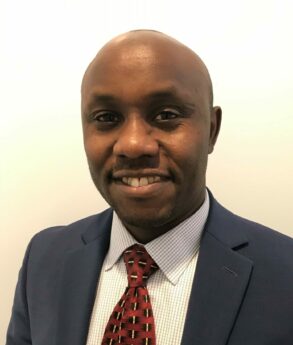 Geofrey Kigenyi, Mercy & Truth Medical Missions, Kansas City
Geofrey Kigenyi, Mercy & Truth Medical Missions, Kansas City
“I have always had a heart of service to others in the communities wherever I have lived,” says Geofrey Kigenyi, so it should be no surprise that his call to serve, and his schooling in behavioral sciences, social entrepreneurship and organizational development would lead him to the non-profit sector. He’s chief operating officer for Mercy and Truth Medical Missions, which thinks globally and acts … well, locally and globally. It operates two clinics in the KC area (in KCK and Shawnee), and has also sent at 75 medical mission teams to more than 50 different countries, not just in Mexico, but in destinations like Colombia, and Uganda. The international program at Sterling College was his first U.S. stop, and his graduate degree came from Avila, “and that gave me the depth needed to do more for under-served communities in KC,” Kigenyi says. His career has moved through Habitat for Humanity for five years, an Overland Park church for three, then for 10 with Mercy and Truth. “As a person of faith, it has been an added privilege to intersect my faith and career combined to do good particularly through the organization I now lead.” That work is made possible, he says, “by the generosity of countless Kansans that give of their time and treasure to serve. … It is our donors, volunteers and staff that make all this work possible.” He’s a board member for the Community Care Network of Kansas, which represents safety net clinics statewide that ensure accessible health care to all.
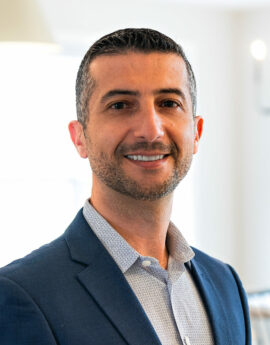 Zalman Kohen, Summit Homes KC, Overland Park
Zalman Kohen, Summit Homes KC, Overland Park
Talk about (literally) building the American dream. Zalman Kohen first came to the United States in 1995 with his family as refugees from Uzbekistan. After graduating with a bachelor’s degree, he found a job with a local land development and home-building organization in 2002. He joined Summit Homes in 2009 as its general manager, then became COO, and just recently ascended to the CEO role this year. As part of Kansas City’s unique market with a diversified builder presence, he said, Summit Homes is proud to both develop and build residential communities, and the company recently welcomed select builders to join its approved builder group to offer consumers variety and choices. “I enjoy seeing how our team transforms raw land into beautiful communities where people get to come home, build memories, and enjoy being part of something special,” he said. “It is truly rewarding to see communities come to life, as ultimately life happens in the homes and communities we build.” Now surpassing more than 3,000 homes built since the company’s founding, Kohen has helped Summit expand into the Des Moines, Iowa, and Boise, Idaho, markets. The company’s success, Kohen said, is truly a reflection of its people. “We have an amazing, talented, and engaged team … and I’m honored to have the opportunity to lead our team in building the next chapter of our journey and continue the legacy of what has made us successful.”
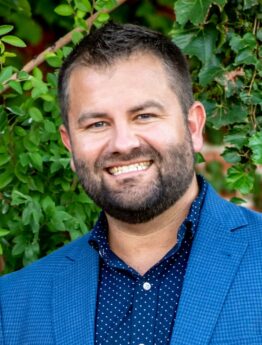 Chet Kuplen, Sports in Kansas, Wichita
Chet Kuplen, Sports in Kansas, Wichita
In 2012, Chet Kuplen had no job and just $200 in the bank. What he did have was experience and a passion for local high school sports. “When I saw how powerful social media was and the limited amount of high school sports on it … I thought we may really have something here—to promote high school student-athletes across the state through the power of social media.” Today, Sports in Kansas is becoming the go-to online destination for local sports coverage across the state—especially as smaller media outlets begin to disappear. Kuplen wants to ensure all students, teams, and communities get the recognition and attention they deserve, not just those in the large schools. “We promote sports at all schools in Kansas—schools that have 14 students in their high school in the Mountain time zone and schools that have 2,400 high school students in a metro area of Wichita and KC. With one view or click of a button, it can really change your life.” With a website, five radio shows, and hundreds of thousands of online followers, Kuplen is also using his platform to teach young people the immense power of social media. His “Think Before You Post” speaking tour has already made more than 500 presentations. “What we do now, good or bad, follows us for the rest of our lives,” he says. “If we can help at least one person at every single event, then we’ve done our job.”
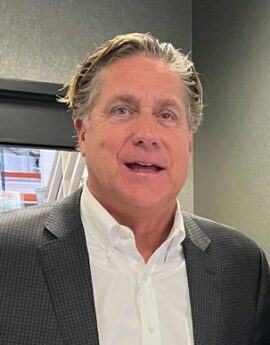 Jim Lee, Lee Aerospace, Wichita
Jim Lee, Lee Aerospace, Wichita
Jim Lee took the entrepreneurial plunge in 1989 by founding his own company in the highly competitive universe of Wichita’s aviation suppliers. Over the course of the next 11 years, he built it into an attractive acquisition target for Pennsylvania-based Triumph Group, then made the sale. Flash forward 14 years, and Lee saw an opportunity to make an acquisition of his own: He bought back the very company he had founded. Lee Aerospace designs and manufacturers acrylic aircraft windows, aerostructure assemblies, and composite parts for companies in the Air Capital of the World, and beyond with a client list that reads like a corporate Who’s Who of Aviation—Textron Aviation’s Beechcraft and Cessna brands, Hawker, Dassault, Galactic, Gulfstream, and Bombardier. There’s a good chance that if you’ve craned your neck on a plane to get a glimpse of the landscape below, you were looking out of a window fabricated by Lee’s team of nearly 250. In fact, the company earned Coolest Thing Made in Kansas from the state Commerce Department last year for a window that does double-duty helping cool cockpit interiors. In addition to product design and manufacturing, Lee Aerospace repairs, installs and distributes aircraft assemblies, sheet metal wing spars, and fuselage assemblies. Beyond his expertise in aircraft production, Lee has also jumped into the digital marketing space, investing in a software platform that gives companies new tools to advertise their products.
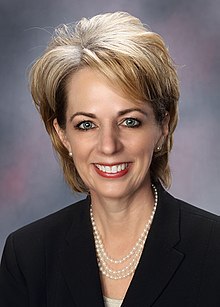 Tisa Mason, Fort Hays State University, Hays
Tisa Mason, Fort Hays State University, Hays
Tisa Mason, a career educator, was sufficiently impressed with the setting at Fort Hays State University that she decided to move there—twice. The first time was in 2008, when she took on the duties of vice president for student affairs. The second came in 2017, when the university called her back as president three years after she had left to assume the leadership role at Valley City State University in North Dakota. “One of the greatest privileges of being a university president,” she said before last spring’s graduation ceremonies in Hays, “is to be present to celebrate our people—knowing that each diploma, each award, and every ceremony is not only about the glorious outcome, but it is equally about the discipline of getting back up after each stumble or fall.” Among her initiatives during her leadership there was introducing the first Day of Giving, a 24-hour fundraising event that supports the university foundation. Mason is a Massachusetts native whose career in higher education has also included stops at the University of Wisconsin-Whitewater, the Sigma Kappa Sorority and Foundation in Indianapolis, Christopher Newport University in Virginia and Hanover College in Indiana. Her own academic background started with in a bachelor’s in sociology/anthropology from Transylvania University in Lexington, Ky., followed by her master’s in education from Eastern Illinois, and her doctorate from the College of William and Mary in Williamsburg, Va.
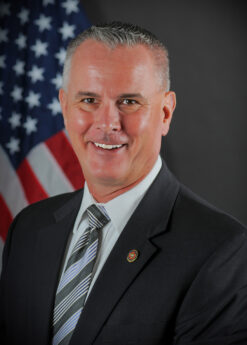 Tony Mattivi, Kansas Bureau of Investigation, Topeka
Tony Mattivi, Kansas Bureau of Investigation, Topeka
As a former federal prosecutor, Tony Mattivi helped convict the Kansas militia members who plotted to murder Somali immigrants in Garden City, the former Marine who tried to detonate explosives at the Wichita airport, and the would-be truck bomber at Fort Riley. So, when he was asked to consider the role of KBI Director—and confirmed by the Senate in February—he said it felt like a natural next step. “I was excited for the opportunity to lead an agency that accomplishes so many critical tasks on behalf of our state,” he said. “We investigate many of the most violent crimes that occur across the state in order to ensure justice for victims and to hold those accountable who wish to threaten or harm our citizens. … It is critical for Kansans to feel safe and secure where they live, work and raise their families.” After spending his childhood and college years in Colorado, he left his job as a paramedic to attend law school at Washburn University. His first job after law school was at the Shawnee County district attorney’s office in Topeka, where he and his wife, Mary (whom he met in law school), raised three children and has been Mattivi’s home ever since. It’s also where he remains committed to serving his fellow Kansans in his new role. “I have centered my professional life on public service and public safety. Our communities must be safe for businesses to thrive.”
 Jy Maze, Maze Freight Solutions, Overland Park
Jy Maze, Maze Freight Solutions, Overland Park
Despite her success in the logistics industry, Jy Maze nevertheless saw an opportunity to make some much-needed improvements. “I was frustrated there was such a lack of diversity and integrity in management and ownership in the entire logistics industry,” she said. “I decided I wanted to be a change agent for this situation.” Starting her career in customer service and then the sales division at Freightquote, Maze not only excelled but was soon setting sales records. Yet, she decided to take the “giant step” to become an entrepreneur, launching her own firm, Maze Freight Solutions, in 2017. Based in Overland Park, the company is now a nationally certified WBE/MBE/DBE. “Building my business by utilizing Black leadership and management, today there is diversity, transparency, and integrity throughout my entire logistics team.” A graduate of Wyandotte High School and National American University, Maze is now involved with Heartland Heroes, a CEO peer group for aspiring business leaders, as well as the Heartland Black Chamber of Commerce and the Kansas City Women’s Business Center. She’s encouraged by the promise of a stronger future for the state. “Kansas is in an incredible growth phase. Because of our central location, available labor, and many resources, major manufacturers and distribution centers are choosing to build facilities here. The result will be the shipping of products all over the United States and to international locations. This will all be a major boost to the Midwest logistics industry!”
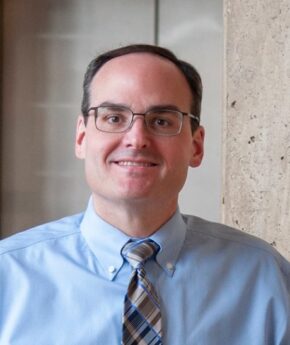 Stephen Mazza, KU School of Law, Lawrence
Stephen Mazza, KU School of Law, Lawrence
It was simple proximity that led Stephen Mazza to his future career. “I didn’t have any immediate family members who were lawyers, but my dad had an office on the town square next to a law firm,” Mazza says. “He admired the lawyers next door, which encouraged me to pursue a law degree.” Born and raised in Huntsville, Ala., Mazza was an honors graduate of the University of Alabama School of Law and received his LLM from New York University School of Law, where he served as managing editor of the Tax Law Review. At NYU, he began his teaching career with a fellowship before he went looking for a permanent position. “My first on-campus interview was at KU Law,” he recalls. “I was so impressed by the quality of the faculty that I canceled all my other call-back interviews and accepted the position here. That was 25 years ago.” First serving as an associate dean, Mazza became interim dean when the dean at the time left. He was then named dean in April 2011 and has appreciated the chance to represent both the school and the alumni over the last decade. “It remains an honor to represent the school to all our constituencies. It’s the highlight of my professional career and I remain grateful to my colleagues for their support.”
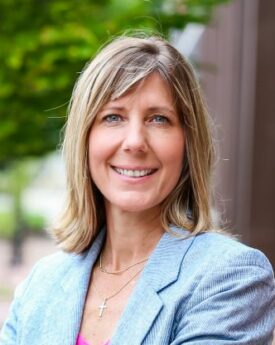 Carisa McMullen, Landworks Studio, Olathe
Carisa McMullen, Landworks Studio, Olathe
For Carissa McMullen, success in business is grounded in three letters: Y.E.S. By taking a “just say yes” approach to serving clients’ landscaping and design needs, she starts the process of finding the most efficient—and smartest—ways to meet those goals. Her Olathe company specializes in master planning and design, natural-resource management, community planning and engagement, transportation, streetscapes, signage, branding and other services. Getting there requires a blend of empathy, a competitive spirit, and a relentless focus on excellence. When she started Landworks Studio in 2000, she says, she wanted to create a place where personal attention defined her approach to every client discussion, and finding ways to turn big ideas into reality. Landworks is a certified Women’s Business Enterprise in Missouri and Kansas. Before she took the entrepreneurial leap, she absorbed lessons learned at opposite ends of the design scale, from both small engineering firm and a large architecture firm. “This exposure,” she says, “has provided me with a wide perspective of practicing professionals across multiple disciplines. I appreciate the issues that thread through each design profession, in addition to those specific to a particular industry.” You can see examples of the firm’s work at Wichita Aquatics center, plans for a new regional park in Topeka, and closer to the home offices, MLK Park in Kansas City and St. Joseph’s Liberty Oak splash park.
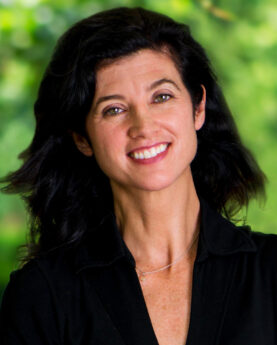 Candice Millard, Author, Mission Hills
Candice Millard, Author, Mission Hills
Truth is often stranger than fiction, as the saying goes, and those true stories—tales of legendary individuals throughout time—have always been appealing to Candice Millard. “I realized that this was what I wanted to do, to tell stories that connect us, through time and physical distance, with people who may seem so different from us that they appear almost mythical,” she said. After attending Baker University, the author of books such as “Hero of the Empire: The Boer War, a Daring Escape, the Making of Winston Churchill” and “The River of Doubt: Theodore Roosevelt’s Darkest Journey” started her career at National Geographic, where she fell in love with historical figures, and now her research leads her all over the world to uncover the missing pieces of their stories. “I think we all have a natural curiosity; mine just happens to be about human nature, what drives us, what defines us. I have never tired of a story I was researching, so I’ve never been tempted to quit before I have what I think—what I hope—is the full picture.” Currently working on her fifth book, she said she hasn’t lost her excite-ment for storytelling. “Living and working in Kansas City has been a great advantage. … I have always had the freedom to tell stories that interest me, and I am able to take the time I need to try to get them right.”
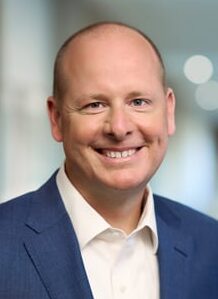 Jon Nash, Cargill Meat Solutions, Wichita
Jon Nash, Cargill Meat Solutions, Wichita
When Cargill’s protein division completed the ground-up construction of a new headquarters in Downtown Wichita, the job wasn’t done until one key piece was in place. That would be Jon Nash, who was a 21-year veteran with the company when he was named president of Cargill Meat Solutions in 2019. Cargill has long held the title of the nation’s largest private company, according to Forbes magazine. It ceded those honors only once in the past 15 years, to cross-town conglomerate Koch Industries, before reclaiming No. 1 in 2021. Nash came on board with Cargill in 1998 as a financial analyst for the processing plant in Schuyler, Neb., working his way up to the president of the company’s protein food-service business. Corporate officials say his leadership tool kit includes experience in commercial, operations, and finance experience. He came to Wichita from Fresno, where Cargill has a beef facility, and Nash served as vice president of operations and general manager. The company is massive, with 155,000 employees overall; the protein and salt division Nash leads counts 60,000 of those working in 17 countries to meet the world’s appetite for beef, poultry, and egg products, distributing to food service, retail, and food-ingredient companies. He’s a Mizzou grad, having earned a degree in finance there before picking up his MBA from Virginia Tech, and he successfully navigated the Harvard Business School’s executive education program.
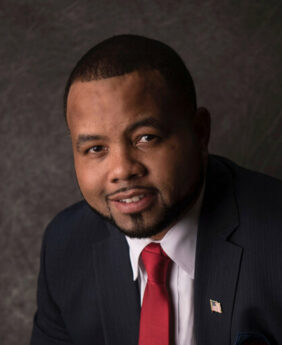 Patrick Penn, Kansas House of Representatives, Wichita
Patrick Penn, Kansas House of Representatives, Wichita
Patrick Penn was not a silver-spooner as a kid, a period in his life marked by abuse and neglect before he made his way to foster care. There, he says, “I learned the importance of faith, family, and hard work.” He put those values to work right out of high school, joining the Army and serving multiple tours of duty in both Iraq and Afghanistan and served with distinction: Before retiring at the rank of captain, he earned the Meritorious Service Medal and the Combat Action Badge. He also leveraged his service to earn a degree in criminology from Colorado State University, then a master’s in applied information technology from George Mason University’s School of Engineering. The father of four found a new calling in 2020, earning a seat in the Kansas House representing northeast Wichita and driven by a desire, he says, “to ensure that all Kansas children, regardless of their upbring and ZIP code, would have access to a quality education and the same opportunities that he did.” In Topeka, he has sponsored and supported measures to create an office of the child advocate, overseeing the interests of children in the state’s foster-care system, supports Wichita’s vital aviation sector, and prohibiting banks, trust companies, credit unions, and other business entities from discriminating based on certain subjective or arbitrary factors. He still finds room within that schedule to serve as a Sunday school teacher and volunteer at his church.
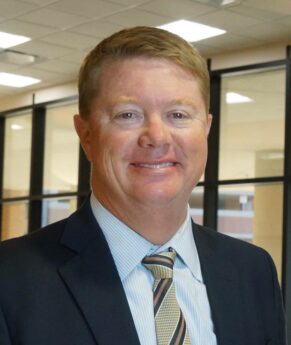 Joel Phelps, Salina Regional Health Center, Salina
Joel Phelps, Salina Regional Health Center, Salina
No one needs to tell Joel Phelps about the challenges confronting hospitals today, especially those in parts of Kansas well outside the health-care centers of Kansas City, Topeka, and Wichita. Even in Salina, the state’s 10th-largest city, scale matters. That’s one reason Joel Phelps, president and CEO of Salina Regional Health Center, worked to bring Abilene Memorial Health System into its fold in 2021, even when his own organization was still dealing with the aftermath of the pandemic peak caseload. “If you are that patient, and one day we are all going to be that, if you present as a patient in Abilene or a patient in Salina, that common medical record is going to allow that care to be seamless and allow that care to be completely coordinated and provides us a really good chance to improve health,” he said at the announcement ceremony. “We are totally excited about that.” Today, the mother ship counts 393 licensed beds among its assets and more than 1,300 employees serving a wide swath of north-central Kansas. SRHC is easily one of the city’s biggest employers, but its influence extends across 13 other counties with a combined population of more than 170,000. Saline County, in fact, accounts for only 60 percent of the system’s patient load. They are served by 135 staff physicians who are able to deliver many of the services that rural Kansans must often drive far to obtain, including cardiovascular surgery, comprehensive oncology care, women’s health care, pediatrics, and more.
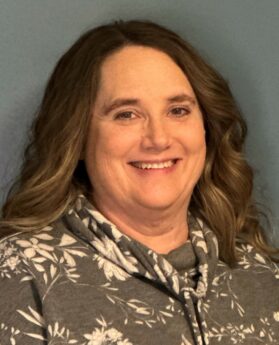 Deb Pochop, Rawlins County Dental Clinic, Atwood
Deb Pochop, Rawlins County Dental Clinic, Atwood
With a career that includes experience in the physical therapy, pharmacy, and even massage industries, Deb Pochop still wasn’t quite ready for her new role in dentistry. “It seemed like a good fit for my skill set, and I already understood many facets of the clinic,” she said. “In reality, I had so much to learn!” The CEO of Rawlins County Dental Clinic has more than 30 years of health-care and management experience but has found a new sense of fulfillment working for the non-profit safety-net clinic, which serves all patients regardless of ability to pay—typically about 2,000 unduplicated patients in more than 8,000 visits each year. In addition to the physical clinic in Atwood, a mobile clinic visits schools, skilled nursing facilities, and developmentally disabled centers—61 different sites in all. It’s an achievement Pochop credits to the team and a unique brand of work ethic found in Rawlins County: “The team here is the best there is, and their hearts are big! The more they tell us that it cannot be done, the harder we work.” Originally from Nebraska, Pochop and her husband have two married children and two grandchildren, and she’s always proud to show off her corner of the state. “It takes a village to raise a child, and this is the village we would choose again and again if given the opportunity.”
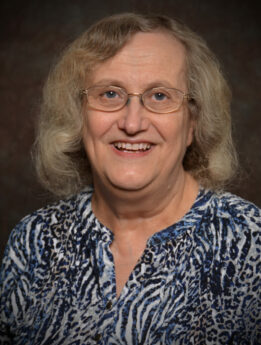 Krista Postai, Community Health Center of Southeast Kansas, Pittsburg
Krista Postai, Community Health Center of Southeast Kansas, Pittsburg
Krista Postai puts new meaning to the term “native Kansan.” Not only was she born in Pittsburg’s Mt. Carmel Hospital, but her great-great-grandparents first came to the area in the late 1800s by covered wagon. Now, as CEO of Community Health Center of Southeast Kansas, her commitment to her home state continues. The non-profit and federally qualified health center provides affordable care—including medical, dental, behavioral health, pharmacy, and more—to more than 70,000 patients each year. Postai is committed to improving her community one patient at a time. “Not only is southeast Kansas the most economically challenged region of the state, it also is the least healthy—and always has been,” she said. “The key to our growth is believing if you’re not part of the solution, you’re part of the problem. We’re determined to reverse the negative trend.” She’s doing that by expanding walk-in care to reduce unnecessary emergency visits, as well as diagnostic capacity by adding mammography and CT in two of her largest clinics. Now with 15 sites in both Kansas and Oklahoma, the center also has both a family practice residency with KU and a pediatric dental residency with NYU. Growing from a double-wide trailer to the largest community health center in the state didn’t come easily, she said, but has been worth the work. “We’ve always believed that mission trumps margin, and if you do the right thing, the money will follow—and it always has.”
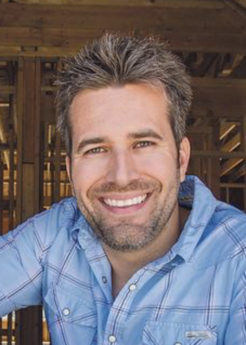 Greg Prieb, Prieb Homes, Olathe
Greg Prieb, Prieb Homes, Olathe
His father started the residential construction firm that Greg Prieb owns today, so building homes is in his DNA. But he’s building more than places for people to live: He’s building communities. “It’s very satisfying and rewarding to be able to drive back through one of the communities we’ve built and developed and see that it’s all working,” says the Prieb Homes owner. “There are people barbecuing in their back yards or watering their lawns; there are kids on bikes riding in the cul-de-sacs, people are walking dogs on the sidewalks, the mailman is pulling up to deliver mail—it’s literally building a community that people are willing to participate in, live in, buy into. It’s cool to know that we, as a company, can do that.” He grew up in southern Johnson County, a region with a long history of explosive residential growth, then studied business administration at K-State. His return to the family enterprise was always the plan. The company specializes in developing large tracts, often with about 400 homes each. “It’s more fun with residential and larger projects,” he says. “It’s more local. Commercial and industrial or retail tend to be more on a national level.” The closer a project is to highways, the more he likes it, which is why a 10-mile span from Olathe to Shawnee has been the company’s sweet spot. With a 10-year pipeline of 1,500 lots to develop, the long-term outlook remains bright, giving Prieb Homes ample opportunities to add to a construction portfolio of roughly 2,000 homes built in his 20 years there.
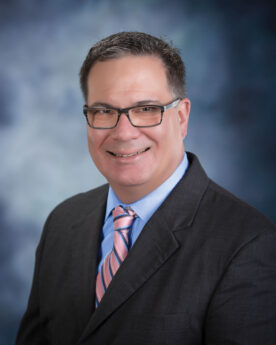 Jim Remar, Cosmosphere International SciEd Center & Space Museum, Hutchinson
Jim Remar, Cosmosphere International SciEd Center & Space Museum, Hutchinson
You could say space kept calling him back. Jim Remar first joined the Cosmosphere as curator in 2000, but after four years away, he rejoined the Smithsonian-affiliated museum and now serves as the president and CEO—a recognized expert in museum administration, strategic planning,and space artifact preservation. “I have always enjoyed history, and this field gave me an opportunity to explore my passion,” he says. “The museum field provides me with the ability to help tell a story that is important to our history but also provides a product—a destination attraction. Tourism is incredibly important to the state economy, and it’s an honor to be a part of what drives tourists to our state.” Remar earned his bachelor’s from Washburn University, a master’s from the University of Nebraska, and his mini-MBA from Wichita State University. He then settled in Hutchinson and jumped at the opportunity to work for one of the foremost space museums and education centers in the U.S., right in his hometown. And now that the U.S. is once again resuming human spaceflight, he’s excited to see a resurgence of interest. “I could go on about why I love working here, but at the end of the day, our ability to impact and inspire young minds is why I walk through the front doors every day,” he said. “The Cosmosphere is in my blood!”
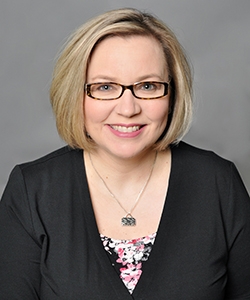 Sara Ritter, Chamber of Commerce/EDC, De Soto
Sara Ritter, Chamber of Commerce/EDC, De Soto
Living in De Soto all her life, Sara Ritter is especially excited about the upcoming Panasonic Energy plant project coming to her area. “It was a dream come true,” she said. “We always knew the potential for the area and what De Soto meant to Johnson County and the State of Kansas as an economic generator. … Having the privilege of working with the team and Panasonic representatives showcased our ability to continue to provide the community with high-paying jobs and bring our children back to De Soto to live, work and play.” Now serving as executive director, Ritter first joined the Chamber back in 2002 because she wanted to work in her hometown and contribute to its economic development. She has since earned her IOM designation from the U.S. Chamber of Commerce Institute for Organization Management and a bachelor’s in public administration from Mid-America Nazarene University. It has all helped prepare her for the profound downstream effects coming De Soto’s way with this new project. “Our partners with the community colleges and universities will give us a huge wealth of information and connections,” she said. “We plan to work with all area communities to reach out and find out how they’d like to partner and be a part of the Panasonic success and story. This is a regional opportunity that will have regional solutions.”
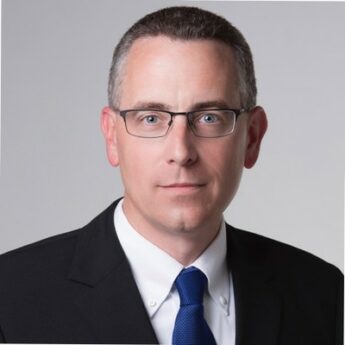 Brett Robinson, Integra Technologies, Wichita
Brett Robinson, Integra Technologies, Wichita
As a lifelong Kansan and Wichita resident, Brett Robinson would like the rest of the world to realize that manufacturing in the state goes well beyond airplanes. “What doesn’t get as much attention is the area also has a great advanced-manufacturing capability,” he says. “Couple that tremendous manufacturing acumen with the attitude and work ethic of a typical Kansas worker and you have a recipe for success.” That mixture is the key reason his company, Integra Technologies, is excited about its plans to invest $1.8 billion in a large-scale semiconductor facility right in Wichita, creating approximately 2,000 high-paying jobs. The now president and CEO started his career at Integra (then called NCR) as a part-time production operator as he paid his way through school. These days, he’s busy planning for his company’s next big step forward, working with local organizations and universities to locate and train the talent of the future—to ensure the pipeline is full before the new facility is finished. Through it all, he said, he’s pleased he can be a part of this massive project in his home state. “As you know, we had an obligation … to make sure we had a backup plan should Kansas not work out. We went out and talked to multiple other states … and found the Kansas group on par or exceeding everyone else we talked to. … The state of Kansas has been a wonderful partner throughout the entire process.”
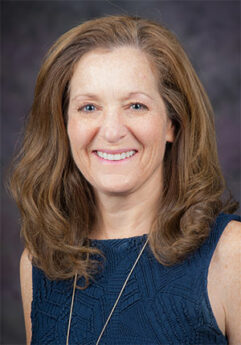 Bonnie Rush, Kansas State University, Manhattan
Bonnie Rush, Kansas State University, Manhattan
When we say Bonnie Rush wrote the book on respiratory diseases in horses, we’re not kidding: She co-authored the medical text “Equine Respiratory Diseases,” along with Tim Mair of the United Kingdom. So when K-State launched a national search for a new veterinary school dean in 2019, it really didn’t have to look too far: The right fit for the role was right there all along. That would be Rush, who had been serving as interim dean of the college since 2017. Into her hands, the state’s land-grant university placed responsibility for research, service, and outreach programs that send highly skilled animal health professionals and researchers to locations around the world. The ones who stay in Kansas are key parts of the ranching and livestock sector, which accounts for a large part of the state’s $5.35 billion in annual agricultural products. Rush directs program development, faculty and student development, research, teaching and extension, program accreditation, diversity, and the 2025 plans for both the college and the university. An Ohio State graduate, she’s been on the faculty in Manhattan since 1993 and in 2014 won the President’s Award for Outstanding Department Head. She also has the 1996 and 2003 Carl J. Norden Distinguished Teacher Awards in her trophy case, as well as the 2002 Pfizer Award for Research Excellence, the 2004 Outstanding Woman Veterinarian of the Year, and the 2009 Distinguished Alumni Award from her alma mater.
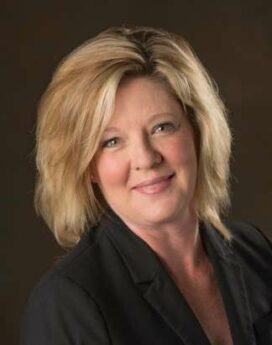 Jenifer Sanderson, Entrepreneur, Goodland
Jenifer Sanderson, Entrepreneur, Goodland
Plainville native Jenifer Sanderson’s elevator-pitch on her part of the state quickly closes the deal: “Western Kansas boasts wide-open spaces and vast land that is reasonably priced as compared to land-locked metro areas,” says the Goodland business figure. “Our technical colleges provide a source of skilled work force. Apprenticeship programs go a step further to assist businesses in cultivating strong and productive staff. We have well-maintained highways, rail, and airports for transporting materials and products. The recipe for success is present.” In a town of 4,500 people, Sanderson casts an oversize footprint in business and civic life; her career has covered community banking, financial management, oil interests and even restaurant franchise ownership. But she’s also a civic whirlwind who was Ken Selzer’s running mate in the 2018 governor’s race. Sanderson, who earned her degree at Fort Hays State University, has also served as chair of the Leadership Kansas Board of Trustees, the board of Sherman County Convention and Visitors Bureau president of the endowment foundation of Northwest Kansas Area Technical College. “We work hard, play hard, challenge one another, and support one another,” she says, adding to that pitch. “We are a remote worker’s dream; we have excellent connectivity!” And, if the message hasn’t been driven home yet: “Goodland is an excellent place to raise a family and succeed.”
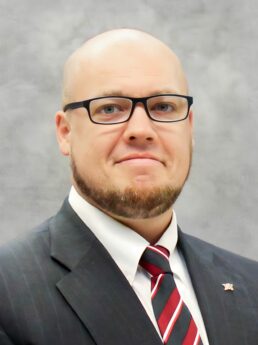 Ben Schears, Northwest Kansas Technical College, Goodland
Ben Schears, Northwest Kansas Technical College, Goodland
It’s truly “grow or die” in his part of the state, so Ben Schears is going with the first option. As president of Northwest Tech in Goodland—one of the largest employers in the county—he sees the potential to have a tremendous impact on the local economy and on his students. Not only is the school among the top 2 percent of U.S. public two-year colleges in graduation rates, but it’s also achieved a 95 percent job-placement rate. The college is also helping to advance the state’s boom in advanced manufacturing, adding a mechanical engineering program and an advanced manufacturing lab. “We have around 350 full-time students annually that we train and send into a very hungry workforce,” he says. “We could produce 10x that number and still not meet the demand we’re experiencing right now. That speaks a bit to our physical presence in the community.” Rural by choice, he says, Schears grew up on a small farm near Emporia and started his own education at Flint Hills Technical College. In his current role, he said he appreciates the “hand-in-glove” relationship between the college and the local community of Goodland. “Hard-working, salt-of-the-earth, give-you-the-shirt-off-their-back kind of people live in this neck of the woods,” he said. “I believe there are a growing number of our community members who want to see growth and who see the necessity of doing something different to reverse population trends, and we’re starting to see people jump on board. That is truly exciting to watch and be a part of.”
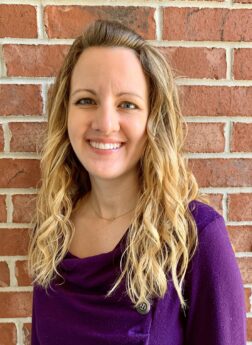 Lindsay Schmidt, STEMM FIRE, Shawnee
Lindsay Schmidt, STEMM FIRE, Shawnee
Living in a town with fewer than 200 residents, you often don’t know what you don’t know. Lindsay Schmidt felt that way growing up in the Pratt County burg of Iuka. “Small-town life has many benefits,” she said. “However, I realize I did not get to see the vast range of career options that are available … particularly in the STEMM arena.” She knew she wanted a career in the medical field, so after Kansas State University and the University of Nebraska Medical Center, she began working as a physician assistant and now works at The University of Kansas Health System in upper extremity orthopedic surgery. Yet, she never forgot the educational inequity between urban and rural areas, especially in STEMM careers. “I looked for an organization that was providing rural students with in-person events demonstrating a wide variety of possible careers in the STEMM fields. … There were some narrow-focused organizations and virtual offerings but nothing that went out and directly got in front of the kids with many careers.” So she started her own. Now as executive director and CEO of Shawnee-based STEMM FIRE, she works to connect STEMM professionals with schools and student organizations in rural areas and small towns across Kansas. “If we impact and change the course of even one student at every school,” she says, “that’s an impact that can affect their families and communities for generations.”
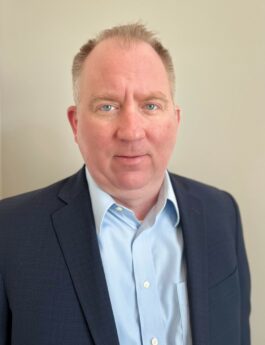 John Stilwell, Grant Thornton LLP, Fairway
John Stilwell, Grant Thornton LLP, Fairway
It may be hard for everyone to see the line that connects John Stilwell’s degree in mechanical engineering from K-State and his current career at Grant Thornton, one of the leading independent audit, tax, and advisory firms. But it makes sense to him. “In both fields, you’re supporting large-scale projects and working alongside clients to achieve their goals,” he said. “Consulting work is highly dependent on in-depth problem-solving skills, which are very common in engineering disciplines. Plus, both are challenging careers that require extensive knowledge of the industry you’re operating in—and I’ve always enjoyed a challenge.” When Stilwell graduated, he said large consultancies were looking for candidates with technical backgrounds—and his skills translated well. “There has never been a day where I’ve looked back or wanted to do something else.” Now serving as a principal at the firm, Stilwell has more than 20 years of consulting experience in areas such as enterprise applications, cloud solutions, data governance and more, and has written more than 20 publicized white papers and methodologies. Still, the Shawnee Mission East grad tries to always remember his Fairway roots and follow the advice of a sign he keeps on his desk: “It says that great leaders lead by example, drive the culture, share the vision, lead with optimism, connect with their team, focus on the process, continuously improve, and stay humble and hungry.”
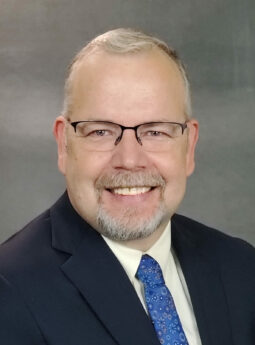 Richard Stinnett, BTCO Inc., Wichita
Richard Stinnett, BTCO Inc., Wichita
Finding good employees is a challenge for any company, but one Kansas organization has found success by tapping into the historically underemployed population of individuals with disabilities. Richard Stinnett is president of the non-profit BTCO, which provides digital document conversion, open-source web research, and precise tolerance engineering plot printing for commercial, government, and military clients. Serving everyone from the Air Force to public school districts, Stinnett has been with BTCO (which also serves as a support organization to the Cerebral Palsy Research Foundation of Kansas) for nearly 18 years, helping it grow from one office in Wichita with eight employees to three locations (Wichita and Topeka) and 56 staff members. “There is no better testament than to have someone join our team, gain marketable skills and confidence, and to move on to a bigger and better opportunity with one of our local companies,” he says. Originally from northern California, Stinnett spent a couple of early years in Wichita and returned after a career in the Army to work as an IT consultant. He’s proud of not only the work done at BTCO but also the strides the team has made to ensure they’re inclusive of all people—and always people-focused. “As an IT tech and consultant, my role often engineered people out of the equation to gain efficiencies,” he said. “But through my role … we strive to engineer the equation around our people.”
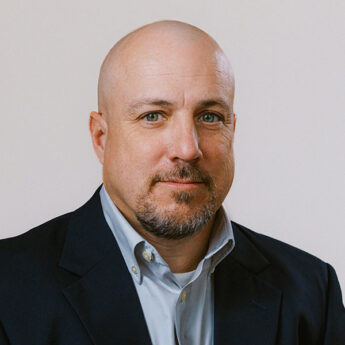 Tony Szot, Superior Excel, Hoisington
Tony Szot, Superior Excel, Hoisington
In the wide-open, sparsely populated stretches of Kansas, it can be tough for employers to find talent. Manufacturers, though, know that the workforce in smaller communities is precisely what they need to operate at higher levels of productivity. But distance is no shelter from broader national workforce trends, which is what compelled Tony Szot, plant manager for Superior Excel, to plead his case for city assistance with workforce child-care needs. In his pitch before the City Council last spring, Szot addressed not only the needs of roughly 220 employees but the plant itself, where 25 open positions were straining the production scheduling effort. And that was before an additional 25 spots were expected to come online following a plant expansion. “We can’t get people to work the night shift,” he told the council. “One of those reasons, I assume, is because the night shift is where the inexperienced, young people go to earn their tenure before a day shift spot opens up. These are the people with children.” The irony is that manufacturing jobs pay quite well; the majority of openings when Szot made his appeal paid between $50,000 to $62,000 per year. “If we continue to have trouble getting people to fill positions,” Szot cautioned, “my fear with Superior Essex being a big corporation is they will take the equipment and move it where they can find employees.”
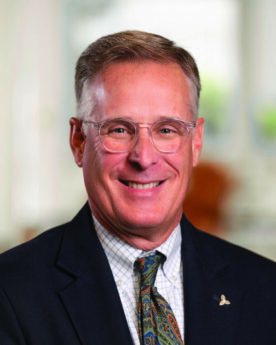 Drew Talbott, Acension Via Christi, Pittsburg
Drew Talbott, Acension Via Christi, Pittsburg
One might think an organization with a third of a billion dollars in annual revenue has got it made. Drew Talbott can tell you that it’s not about the money: It’s about the sector. And his is acute health-care delivery in Pittsburg, an increasingly challenging field for a community hospital with 76 beds. Ascension Via Christi’s facility there plays a significant role in the economy of Pittsburg as an employer as well as a health-care provider, with nearly 3,300 annual patient discharges and close to 12,000 patient days logged. Talbott, who holds a master’s degree in health science administration from Southwest Baptist University, is at the forefront of the battle for community hospitals to remain relevant. His, in fact, was something of a white knight that rode into Fort Scott, 30 miles to the north, to help plug a gap after the closing of Mercy Hospital there in 2018. Mercy officials agreed to keep at least the emergency room open until Ascension could secure licensing to step in. Here’s what was at risk had that not happened: Over the next two years, more than 16,000 emergency room patients were treated at that site, which also conducted more than 20,000 imaging studies and 54,000 lab tests. In an interview last year, Talbott said that expanding services beyond those wouldn’t be possible without additional funding, either federal or from local taxpayers. “We accepted the community’s invitation to serve because ensuring Kansans’ access to care is in keeping with our mission as a non-profit Catholic health-care system,” he said.
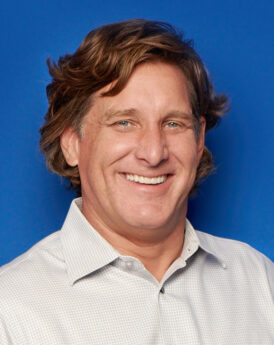 Charlie Tetrick, Walz Tetrick Advertising, Mission
Charlie Tetrick, Walz Tetrick Advertising, Mission
As much as he loved growing up in Tulsa, Okla., Charlie Tetrick was ready to spread his wings. After landing at KU and catching the “advertising bug” his junior year, he looked east after graduation to start his career. “After college, Kansas City was the perfect backdrop to start a company,” he said. “It had a vibrant economy, a booming civic class, and loads of opportunity.” Not long after, he became a managing partner and then the owner of Walz Tetrick Advertising. Today, the 56-year-old firm is part of the patchwork of privately held advertising and marketing shops based in Kansas City—something Tetrick sees as a big contributor to the city’s success: “What many may not know is that a tremendous amount of our (collective) work is done outside Kansas City,” he said. “And that means these agencies are bringing hundreds of millions of dollars back to our city, and that helps to employ thousands of people here.” Despite being in his leadership role, he still feels the same passion for the field he grew to love decades ago. “We get to tackle client challenges each and every day,” he said. “And that makes each and every day unique and interesting—that’s the fun stuff. Results for clients is why we do what we do.”
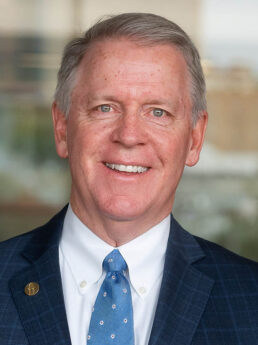 Mark Thompson, Country Club Financial, Mission Hills
Mark Thompson, Country Club Financial, Mission Hills
That Missouri-Kansas border war thing? It continues to fade into history. Consider the case of Mark Thompson of Country Club Financial, one of the Kansas City area’s biggest Missouri-based family-owned banks, who now calls himself a Kansan. “My wife is a Jayhawk—she was the Baby Jay mascot in the 1988 season—and, so far, so is one of my sons,” says the chairman of Country Club Trust, whose own educational roots trace to Georgetown University and its law school. “When we moved from our home in Missouri that my wife’s family grew up in (which was across the street from where my family grew up), my wife and I were really looking for a place nearby where we could build. It just happened to be on the other side of the state line.” So forget the history: Thompson has another agenda top of mind: “I’ve committed my life to influencing the growth of the greater Kansas City region,” says Thompson, who was in private practice and served as a federal prosecutor before joining the family enterprise. “My goal has always been for that growth to better our local communities, both for our current residents and businesses, and for those down the line.” Thus, he says he evaluates service and business opportunities with an eye toward their metro-wide impact. “Working together,” he says, “we can create positive regional impact and lift up both sides of the state line.”
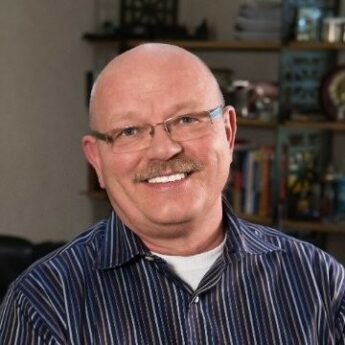 David Vander Griend, IMC Inc., Colwich
David Vander Griend, IMC Inc., Colwich
The mission is pretty simple for David Vander Griend and his team at ICM: It wants to improve agricultural sustain-ability, advance renewable energy processes, and develop technologies that will increase the world’s protein supply. That sounds more like a mission statement for the United Nations than it does for a Kansas-based ag-tech firm, but Vander Griend has been shaking up that space for nearly 30 years. He and his late brother, Dennis, founded the company in 1995, building dryers to improve the quality and longevity of grains used by distillers. By 2001, ICM had developed an ethanol production process, filed for a patent, and then designed and built its first ethanol plant in the U.S. The concept was a hit in the industry: Less than seven years later, ICM designed its 100th North American plant, and in 2011, it was officially an international company as one of the plants it designed began operations in Hungary, followed in short-order by others in Argentina and Brazil. In 2019, the company’s next iteration came as it partnered to create ELEMENT, a Colwich biorefinery capable of producing 70 million gallons of fuel each year, using ICM technologies that the company says “set new standards for operational efficiency and carbon intensity.” The ICM scorecard: It has designed 108 ethanol plants worldwide, which account for one-third of the planet’s ethanol production. Project revenue to date has passed $4.5 billion, thanks to 5,500 projects completed in 300 locations. See? Simple.
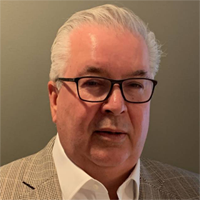 Ken Wagner, Heritage Tractor, Baldwin City
Ken Wagner, Heritage Tractor, Baldwin City
Ken Wagner tells the story about the day his new ag-implement company received delivery of its first piece of stock equipment. The driver bringing in that no-till drill zipped past the company site, back and forth, looking for an established business. Wagner and his partner were able to get his attention, explain that the company was indeed a going concern, and even boasted of a $1 million first-month backlog of orders. To which the driver wryly responded: “You guys ought to quit right now.” Well, there’s no mistaking the presence of a thriving company today. Heritage Tractor, a John Deere dealership, operates more than 20 locations in the four-state area of Kansas, Missouri, Oklahoma, and Arkansas, selling new and used tractors, planters, sprayers, drills, and other ag equipment, along with parts and service. You don’t have to till the soil to be a customer: It offers a wide range of lawn and garden equipment suited to the needs of exurban dwellers on those oversized lots out in the country. From his lean early days to a thriving enterprise, Wagner has developed a set of rules to live by in business, especially for those who hope to become dealers: Surround yourself with a good corps of people, make sure you’re properly capitalized, don’t try to grow too big too fast, never forget who the customer is, and reward the employees who are performing for you.
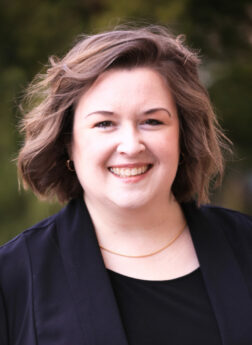 Julie Roller Weeks, Abilene Convention & Visitors Bureau, Abilene
Julie Roller Weeks, Abilene Convention & Visitors Bureau, Abilene
Although she calls herself a “proud ruby-sneaker-wearing Kansan,” Julie Roller Weeks knows the state has a lot more to offer than just Dorothy and Toto. “We have so many stories to tell,” she said. “Tourism is the most rewarding because all economic development activities start with a visit. Tourism is a value-add to communities, and my goal is to generate economic growth in Abilene through tourism.” Originally from nearby Woodbine in Dickinson County, she earned her journalism and mass communication degree from Kansas State, then immediately began working to promote Kansas communities—serving as a Main Street director in Augusta, working in economic development in Pottawatomie County, and marketing Kansas products for the Department of Agriculture in Manhattan. Now, she’s back in her home county and leading Abilene’s convention visitors office, a task abetted by the presence of a presidential library. She’s helping the town garner increasingly noteworthy national attention: Destination of the Year by the Midwest Travel Network, Best Historic Small Town by USA TODAY, Friendliest Small Town in the U.S. by TravelAwaits, Best Small Town to Visit by Smithsonian Magazine, and many others. “From Eisenhower to the Chisholm Trail, worldwide entrepreneurs, incredible architecture … we are rich with attractions,” she said. “The goal is to keep Abilene’s name front of mind as a community that’s doing great things. If you’re going to work in tourism in Kansas, Abilene is a shining star!”
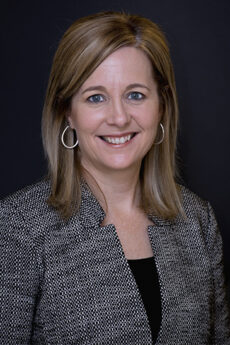 Candace Wright, Blue Valley Technologies, Home
Candace Wright, Blue Valley Technologies, Home
Candace Wright readily concedes the multiple downsides of the 2020 pandemic, but from tiny Home, Kan.—population 171—she sees another side of it in the way American workplaces and lifestyle choices have changed. “We now know that you can live wherever we want to with connectivity today,” she says, and she should know: She’s the CEO of Blue Valley Technologies, serving a four-county area of north-central Kansas with a full suite of IT services for business and home. “I tell people I’m rural by choice,” says Wright, who joined Blue Valley in 2007 as controller after 11 years as a CPA in nearby Marysville. “We offer the exact same opportunities any other place offers” with remote work today. “The pandemic advance how important connectivity is. Once you get that, everything is at your fingertips. We always knew that, but the pandemic pushed us over the cliff in knowing how important that is.” Wright was elevated to CEO in 2018, and oversees Blue Valley and its Networks Plus division. Interestingly, at a time of acute labor shortages, she has a harder time filling positions in larger service cities like Topeka and Salina than she does in the smaller communities. Some of that she attributes to employees, including her COO and an engineer, who made the same decision she did to choose rural. “After you move away, you realize how great it was back where you were,” she says. “My husband and I wanted to raise our kids in the same kind of environment we grew up in.”